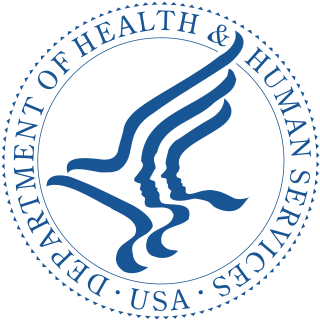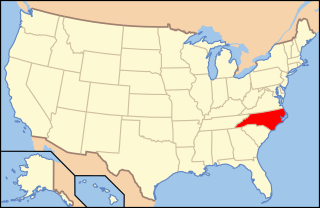
The United States secretary of health and human services is the head of the United States Department of Health and Human Services, and serves as the principal advisor to the president of the United States on all health matters. The secretary is a member of the United States Cabinet. The office was formerly Secretary of Health, Education, and Welfare. In 1980, the Department of Health, Education, and Welfare was renamed the Department of Health and Human Services, and its education functions and Rehabilitation Services Administration were transferred to the new United States Department of Education. Patricia Roberts Harris headed the department before and after it was renamed.

The United States Department of Health and Human Services (HHS) is a cabinet-level executive branch department of the U.S. federal government created to protect the health of the U.S. people and providing essential human services. Its motto is "Improving the health, safety, and well-being of America". Before the separate federal Department of Education was created in 1979, it was called the Department of Health, Education, and Welfare (HEW).

The Texas Department of Assistive and Rehabilitative Services (DARS) was a Texas state agency that was part of the Texas Health and Human Services Commission. The agency worked with Texans with disabilities and children with developmental delays to improve the quality of their lives and to enable their full participation in society.
The National Human Genome Research Institute (NHGRI) is an institute of the National Institutes of Health, located in Bethesda, Maryland.

The North Carolina Department of Health and Human Services is a large state government agency in the U.S. state of North Carolina, analogous to the United States Department of Health and Human Services. The NCDHHS has more than 18,000 employees. The NCDHHS has its origins in the former North Carolina Department of Human Resources (DHR). The head of NCDHHS (Secretary) is appointed by the governor of North Carolina, confirmed by the North Carolina Senate, and is a member of the North Carolina Cabinet in the executive branch of the North Carolina government. The NCDHHS was created in 1971.
An intensive outpatient program (IOP), also known as an intensive outpatient treatment (IOT) program, is a structured non-residential psychological treatment program which addresses mental health disorders and substance use disorders (SUDs) that do not require detoxification through a combination of group-based psychotherapy, individual psychotherapy, family counseling, educational groups, and strategies for encouraging motivation and engagement in treatment. IOP operates on a small scale and does not require the intensive residential or partial day services typically offered by the larger, more comprehensive treatment facilities.
Spring Harbor Hospital is a 100-bed free-standing nonprofit psychiatric hospital located in Westbrook, Maine. It is one of two free standing psychiatric hospitals in the state of Maine and offers services for both children and adults.

The New Jersey Department of Health (NJDOH) is a governmental agency of the U.S. state of New Jersey. New Jersey's State Board of Health was established in 1877. Its administrative functions were vested in the Department of Health, which was created in 1947. In 1996, the latter was renamed the Department of Health and Senior Services (DHSS). In 2012, senior services programs moved back into the Department of Human Services, and DHSS again became the Department of Health.

Riverview Psychiatric Center, also known as Riverview Psychiatric Recovery Center, is a psychiatric hospital in Augusta, Maine, operated by the Maine Department of Health and Human Services. The center recruits for volunteers from the United Way for certain services.

The Arkansas Department of Human Services (DHS) is a state agency of Arkansas, headquartered in Donaghey Plaza South of the Donaghey Complex, a five-story building on the southwest corner of Main Street and 7th Street, in Little Rock.
The Colorado Department of Human Services (CDHS) is the principal department of the Colorado state government that operates the state's social services. It has its headquarters in Denver.
The Nevada Department of Health and Human Services (DHHS) is a state agency of Nevada, headquartered in Suite 100 of the 4126 Technology Way building in Carson City. The agency provides health services and human services.

The New Hampshire Department of Health & Human Services (DHHS) is a state agency of the U.S. state of New Hampshire, headquartered in Concord. Providing services in the areas of mental health, developmental disability, substance abuse, and public health, it is the largest agency operated by the state.
The Nebraska Department of Health & Human Services (DHHS) is a state agency of Nebraska, headquartered in Lincoln. The agency provides health and human services for both families and regular patients. DHHS is Nebraska's largest agency and is responsible for nearly one-third of the state's government, both in employees and budget.

The state of North Carolina is undertaking a comprehensive policy shift on how the government budgets for and manages resources for mental health, developmental disability, and substance abuse services. The 1915 (b)(c) Medicaid Waiver Program was chosen by the North Carolina Department of Health & Human Services, Division of Medical Assistance as a way to control and more accurately budget for the rising costs of Medicaid funded services. The 1915 (b)(c) Waiver Program was initially implemented at one pilot site in 2005 and evaluated for several years. Two expansion sites were then added in 2012. Full statewide implementation is expected by July 1, 2013.
The Office on Women's Health (OWH) is part of the U.S. Department of Health and Human Services (DHHS) and functions to improve the health and well-being of U.S. women and girls. The main headquarters, from which the OWH operate, is located in Washington, DC with ten other regional women's health coordinators positioned across the country to implement local health initiatives.

Maine Question 2, formally entitled "An Act To Enhance Access to Affordable Health Care", was a citizen-initiated ballot measure that appeared on the November 7, 2017 statewide ballot in the State of Maine. Maine Question 2 sought to expand Medicaid eligibility under the terms of the Affordable Care Act. The measure passed.

The New Jersey Department of Human Services (DHS) is the largest state government agency in New Jersey, serving about 1.5 million New Jerseyans. DHS serves seniors, individuals and families with low incomes; people with developmental disabilities, or late-onset disabilities; people who are blind, visually impaired, deaf, hard of hearing, or deaf-blind; parents needing child care services, child support and/or healthcare for their children; and families facing catastrophic medical expenses for their children.

The COVID-19 pandemic in New Hampshire is part of an ongoing pandemic of coronavirus disease 2019 (COVID-19) in the U.S. state of New Hampshire. The first confirmed case was reported on March 2, 2020. A state of emergency was declared March 13, which included a ban on gatherings of 50 or more people. A small group filed a lawsuit claiming the order infringed on their right to assemble and worship; a judge dismissed the suit. On March 26, all nonessential businesses were closed and Governor Chris Sununu advised people to only leave home for essential necessities. That stay-at-home order was extended several times before being allowed to expire on June 15. Through November 22, a total of 74 emergency orders had been issued by Sununu. Sununu lifted the mask mandate as of April 16, 2021.
The COVID-19 pandemic was publicly reported to have reached the U.S. state of Maine on March 12, 2020. As of February 2, 2021, the Maine Department of Health and Human Services reported 131,530 confirmed cases and 46,971 probable cases in the state, with 1,777 deaths attributed to the virus.









